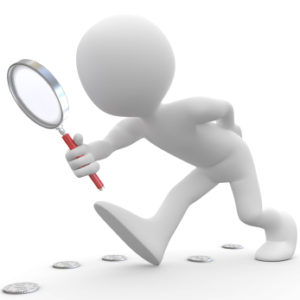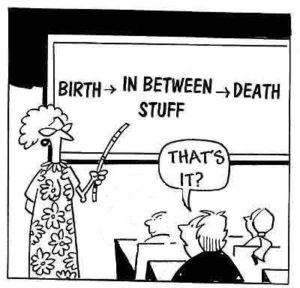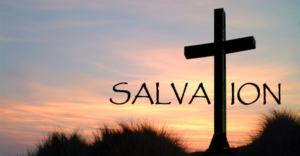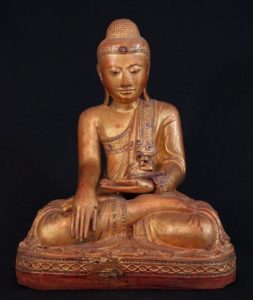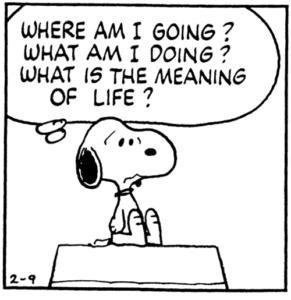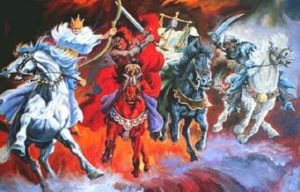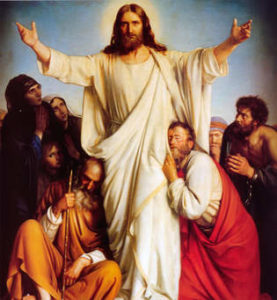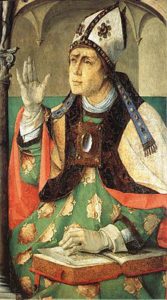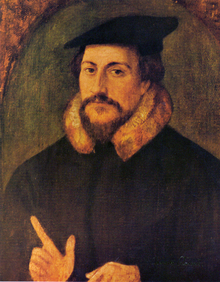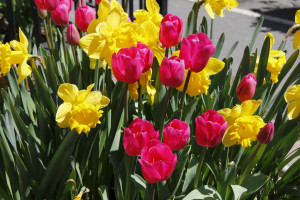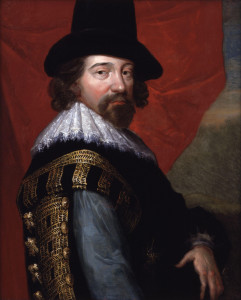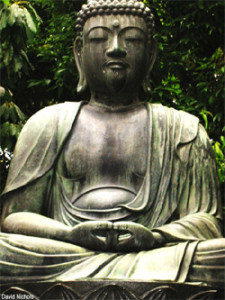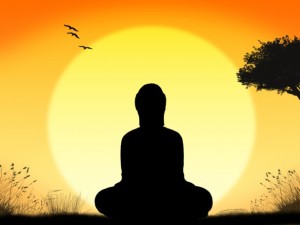
Meditation
Humans have been meditating ever since our brains got big. There are seekers who look around the world for answers to what is essentially unknowable, but we still wonder. There are always people who will tell you they have the answer, and most people are willing to accept what they say. I am one of the exceptions. I am one of the seekers, always have been.
I looked for the answers with the organizations that say they know. I was never quite satisfied. I was raised a nominal Methodist, but it never resonated with me. For many years I was a rabid agnostic, challenging every belief. It worked, too, except with those persons grounded in their faith. I looked into lots of beliefs. I investigated various flavors of Christianity, existential philosophy (the ultimate refuge of the sceptic), the power ideologies, Zen, radical politics, straight humanism, and scientific atheism. Nothing worked, and I plunged into some of them fairly deeply.
I attended college during the turbulent late 1960’s. Parallel with politics were the drugs. I smoked lots of dope, and it helped me to get more in touch with my feelings. Paradoxically, marijuana is useful if you just want to numb out while feeling good. I did that a lot. Then there was LSD. Lots of people used acid to have fun and maybe explore a changed way of perceiving reality. Others, myself included, attempted to use acid in the Quest.
My friends would take one hit of acid, I tended to take three. By lying down at night and looking straight up I saw the matrix of universal existence, how the entire universe is interconnected. The problem is that I always came down, and a lot of what I had seen retreated. I finally gave acid and pot up.
I continued to seek, but I also despaired of finding any answers for the Question. I did the regular stuff, got married, had a career, and engaged in lots of activities. I explored the wilderness, bred and showed dogs, hunted, drank quite a bit, and had most of it fall apart.
I was divorced, lonely, depressed, and starting a new career that was technical rather than person-oriented. I was in the dark night of the soul. I fell into Pentecostal Christianity, which puts a lot of emphasis on experiential activities. In other words, I was a Tongue-Talking Holy Roller. I experienced the divine. I literally felt the love of Christ. I plunged in all the way for a couple of years, but the fundamentalism and the underlying Calvinism did me in.
I went from the Pentecostals to Charismatic Episcopalian churches. The evangelicalism pushed me out again. I ended up a mainstream Episcopalian. I love the liturgy, the ceremony, the openness to religious exploration. I had trouble with the Church. The only time the Church contacted me directly was to ask for money, and I had been steadily giving. I had to write the Bishop to get accommodations to my shift worker schedule in order to take the course leading to confirmation.
I left. I still think of myself as an Episcopalian, but my churchgoing has lapsed. During my time as an Episcopalian, I began doing Christian Contemplative prayer. For most of my life, meditation was almost impossible because my ADD-addled brain would never quiet down. I was finally able to meditate.
I stayed with the contemplatives for quite a while, going to a weekly group, going on retreat, and reading widely. The Christian mystical tradition is as ancient as Christianity. In the west, it survived mostly in a monastic setting. The Carmelites, the Trappists, and a number of other orders have kept the tradition alive. Today it is moving out of the cloister into the lay community. It is still mostly Roman Catholic. The Roman church has always tolerated the Mystics, as they are vital to the Christian tradition, but they have never very good at following all the rules. That divine spark within all of us have grows in a mystic. The presence of God within, and following His will is not always compatible with the Church’s teachings.
My dissatisfaction with the institutional church eventually drove me away. I am still a Christian, but not able to belong to anything but the Body of Christ. I need a spiritual community, however, so I began a search into Buddhism. Why Buddhism? Buddhism is grounded in meditation and the search for enlightenment. It is also essentially atheistic. All those Buddha statues you see in Buddhist places of gathering and meditation are of a man, not some deity. The Buddha was simply a man who entered into extensive study and meditation and began to teach. His teachings were extensive and are expanded into a huge literature.
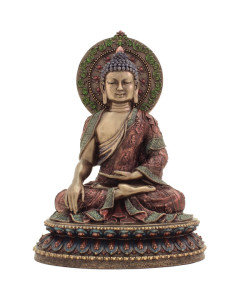
The Buddha, one hand touching the earth – staying grounded
There are many strains of Buddhism, not just Zen and Tibetan, although those are biggest here in the U.S. They all share the same goal, which is identifying suffering and seeking the end of suffering. There are many practices and beliefs, but they all share the goal of ending suffering.
My first attempt to find a teacher and sangha was in Zen. Must of what I had read was in that tradition so to The Denver Zen Temple I went. There is a strong tradition in Zen to continue almost all the practices followed in Japan. That means robes, chants, a hierarchy of spiritual attainment and ordination into the hierarchy. There are also lots of rules, as Japan is also full of rules. The place where people sit zazen (meditate) is called the zendo. I could not walk into the zendo without getting into trouble. I just could not remember all the things I was supposed to do.
I loved sitting zazen. It is an excellent form of meditation. The literature here in the west skips over all the other stuff. The practices are intended to instill discipline which is fine but they come directly from a monastic tradition where monks devote their lives to Zen. In addition, the liturgy is in Japanese, Chinese, Sanskrit, Pali, and English. It was all too much for me and I didn’t especially like the teacher.
I find Tibetan Buddhism appealing, and the Dalai Lama is a world treasure. I have trouble with Tibetan Buddhism’s involvement with the spirit world. The spirit world is all around us, but my belief is that we’re in the physical world to accomplish tasks here, not with spirits. I have seen the price paid by those who follow that path, whether with benign or malevolent spirits. The spirits are just that, spirits, non-corporeal. In order to manifest they need energy from us, and losing that energy takes its toll, physically and often mentally.
Now I belong to the Denver Insight Meditation community. It is part of the Theravada Buddhist tradition, and is found in Sri Lanka, Thailand, and some other places in Asia. Theravada is one of the two main traditions in Buddhism, Mahayana being the other. There are differences, the main one is that the Mahayana tradition uses Sanskrit, while Theravada uses Pali, a language contemporary with Sanskrit. It has a large following here in the U.S. with a good and growing literature.
The primary teacher in our sangha is Lloyd Burton, a wonderful teacher with a wide knowledge of Theravada Buddhism. We meet weekly for two hours, spending forty minutes in meditation, a break, then a Dharma talk by Lloyd or another teacher. The Dharma is the body of Buddhist teachings used as a guide to end suffering.
Carol and I recently attended a small meditation group close to where we live. It lasts one hour, thirty minutes of meditation and a thirty minute dharma talk every Monday evening. I think we will be regulars. Every morning we do a ten minute brain brushing (quick meditation) with our tea. It is also insight meditation and is a good way to start the day.
I have found that the more meditating I do the more I want to do. All the teachers say that a regular meditation practice is the key, just as in prayer. I fact, my meditation is prayer. Most of the Buddhist meditations are silent, with the focus on breath. When other thoughts arise, as the will, one gently returns to focusing on the breath. With my ADD, emptying my mind is mostly impossible. I close my eyes and my mind goes into high gear.
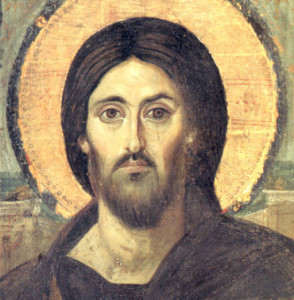
Eastern Orthodox Icon of Jesus
I use a mantra to repeat throughout my session. This is another ancient practice. I use the Jesus Prayer, “Lord Jesus Christ, have mercy on me, a sinner.” This is an ancient Eastern Orthodox prayer, going back to the desert monks in the early days of Christianity. I match the words to my breathing, and when I drift away, I gently return to the prayer.
What? A Christian prayer in Buddhist meditation? Well, yes. Buddhism is essentially atheistic, and the whole karma/reincarnation thing I just view as a mystery. Whatever works. I recommend a strong spiritual practice. I don’t think it is necessary to follow one specific path. All the world faiths contain the same basic truths. One should choose the path that feels right.
Don’t follow any one person or group who say their path is the only way, give yourself to us. Anyone who says that is a liar and a fraud, interested mostly in control. I don’t care if it is one leader with just a few followers or a huge organization with millions of followers, if they say their way is the only way, they lie or are deluded. The paradox is that many in those faiths do find the way. It is their individual practice and relationship with the universe that matters, not the framework.

